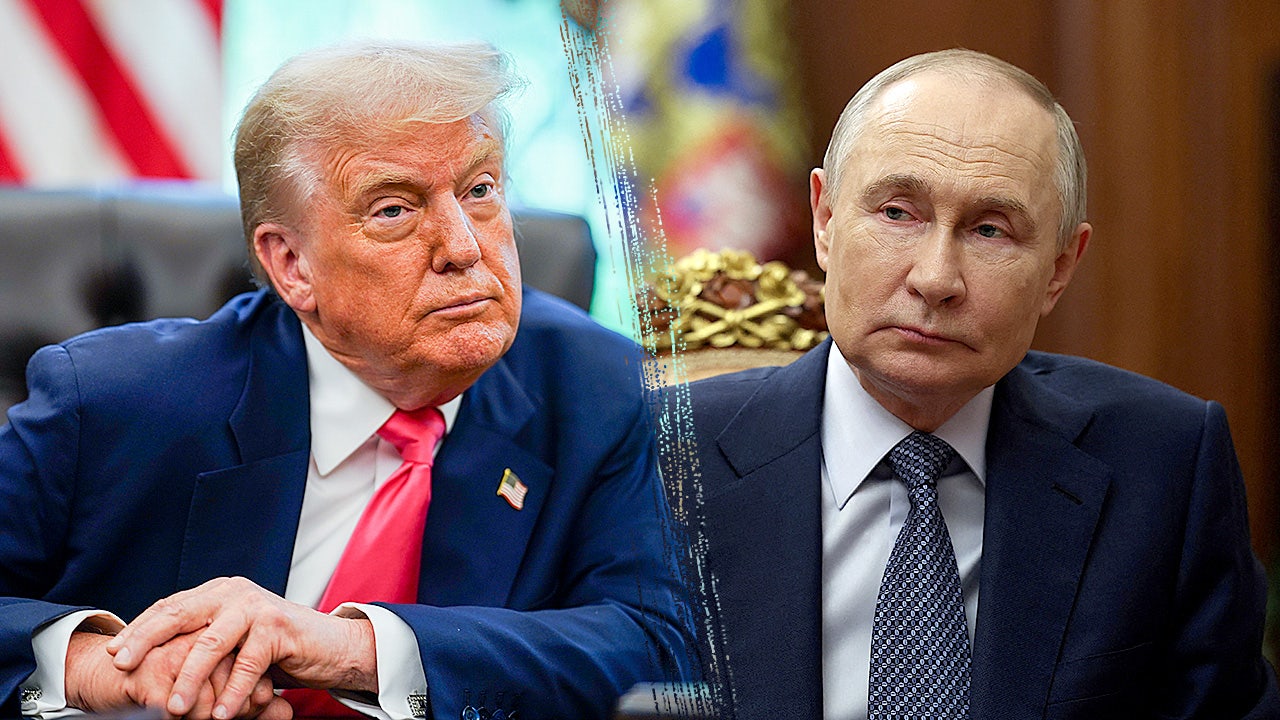Will the Trump-Putin Alaska Summit Split Congress?

Reactions to the Trump-Putin Summit in Alaska
The recent summit between President Donald Trump and Russian President Vladimir Putin in Alaska has sparked a whirlwind of reactions from lawmakers in Washington, D.C. While many Republicans praised Trump's assertive approach towards Russia and called for his nomination for a Nobel Peace Prize, Democrats expressed concerns about his seemingly amiable relationship with Putin. This article delves into the diverse perspectives surrounding this high-stakes meeting, examining the implications for U.S.-Russia relations and global politics.
Republican Praise for Trump's Diplomatic Efforts
Following the summit, several Republican lawmakers commended President Trump for his bold stance. Rep. Brian Mast from Florida highlighted the significance of Trump's actions, interpreting the flyover of B-2 bombers as a clear message to Putin. According to Mast, this military display signified that the United States was serious about defending its interests and that there could be "serious consequences" for any aggressive moves by Russia.
Another Republican voice, Rep. Andy Ogles from Tennessee, announced his intention to nominate Trump for the Nobel Peace Prize, emphasizing the president's efforts to foster peace during the summit. This sentiment reflects a broader GOP narrative that views Trump's foreign policy as a departure from previous administrations, particularly in how it addresses Russian aggression.
Democratic Criticism of Trump's Approach
In stark contrast, Democratic lawmakers criticized Trump's demeanor during the summit. Rep. Eric Swalwell from California described the meeting as a moment where Trump "toasted" Putin, comparing it to giving the Russian president a "lifetime achievement award." This metaphor underscored the Democrats' concerns that Trump's friendly overtures could undermine U.S. interests and embolden Putin on the global stage.
Rep. Eugene Vindman from Virginia raised additional alarms, suggesting that Putin's presence on U.S. soil was a significant victory for the Russian leader. Vindman pointed out that the meeting legitimized Putin, who would otherwise be considered a global pariah due to his controversial actions on the world stage. His comments reflect a sentiment among Democrats that the summit could inadvertently strengthen Russia’s position internationally.
Military and Political Implications
The summit's proceedings were not only about diplomacy but also had military undertones. As Trump and Putin engaged in discussions, there were underlying tensions regarding military operations and geopolitical strategies. Senator Ted Cruz from Texas criticized the previous Biden administration for its handling of sanctions against Russia, linking it to the ongoing conflict in Ukraine. Cruz argued that Biden's waiver of sanctions on the Nord Stream 2 pipeline had inadvertently provided Russia with a financial advantage that contributed to the war in Ukraine.
Senator Lindsey Graham from South Carolina echoed similar sentiments, emphasizing the need for a robust deterrence strategy to prevent future invasions by Russia. Graham suggested that a meeting involving Trump, Putin, and Ukrainian President Volodymyr Zelenskyy could be pivotal in resolving the conflict, expressing cautious optimism about the potential outcomes.
Looking Ahead: The Need for Strategic Diplomacy
As the dust settles on the Alaska summit, the contrasting reactions highlight the complexities of U.S.-Russia relations. For Republicans, the summit is seen as an opportunity for peace and a chance to reshape the dynamics of international relations. Democrats, however, view it as a potential endorsement of authoritarianism that could have lasting implications for global stability.
Moving forward, it is crucial for U.S. policymakers to navigate these challenges carefully. The effectiveness of diplomatic efforts will depend on the ability to balance assertiveness with engagement, ensuring that national interests are protected while also pursuing avenues for peace. The political ramifications of this summit will likely influence the upcoming elections and shape foreign policy discussions in the years to come.
FAQs
What were the main outcomes of the Trump-Putin summit?
The summit aimed to address various geopolitical issues, including military tensions and economic sanctions. While Republicans viewed it as a step toward peace, Democrats expressed concerns about legitimizing Putin's regime.
How did lawmakers react to the summit?
Reactions were polarized; Republicans praised Trump's assertiveness and called for a Nobel Peace Prize nomination, while Democrats criticized his friendly approach toward Putin.
What implications does the summit have for U.S. foreign policy?
The summit's implications could reshape U.S.-Russia relations and influence future diplomatic strategies, emphasizing the need for a balanced approach to diplomacy and deterrence.
In conclusion, the recent summit between President Trump and President Putin has generated a spectrum of responses, reflecting the deep divisions in U.S. political discourse regarding foreign policy. As the situation unfolds, it begs the question: How can the U.S. effectively balance diplomacy and national security in engagements with authoritarian regimes? #TrumpPutin #Diplomacy #ForeignPolicy
```Published: 2025-08-16 03:10:38 | Category: Trump GNEWS Search



